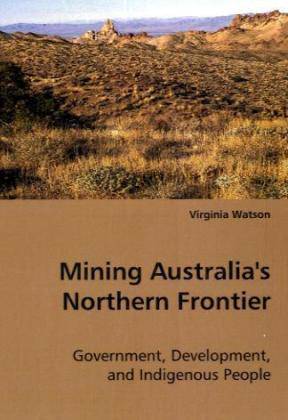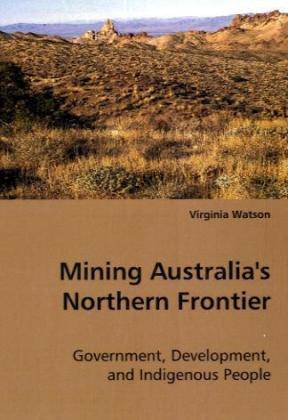
Door een staking bij bpost kan je online bestelling op dit moment iets langer onderweg zijn dan voorzien. Dringend iets nodig? Onze winkels ontvangen jou met open armen!
- Afhalen na 1 uur in een winkel met voorraad
- Gratis thuislevering in België vanaf € 30
- Ruim aanbod met 7 miljoen producten
Door een staking bij bpost kan je online bestelling op dit moment iets langer onderweg zijn dan voorzien. Dringend iets nodig? Onze winkels ontvangen jou met open armen!
- Afhalen na 1 uur in een winkel met voorraad
- Gratis thuislevering in België vanaf € 30
- Ruim aanbod met 7 miljoen producten
Zoeken
Mining Australia's Northern Frontier
Government, Development and Indigenous People
Virginia Watson
Paperback | Engels
€ 77,95
+ 155 punten
Omschrijving
This book makes a unique contribution to the understanding of Australia's frontier history by outlining the different political rationalities that have been used to govern the opposition between the commercial exploitation of Australia's land through mining, and its occupation by the original inhabitants. Successive governments have used different kinds of 'political rationalities' aiming sometimes to 'preserve' the Indigenous people, at other times to 'transform' them. Aborigines could be treated as passive objects of either of these strategies, or as active participants. Drawing on the work of Michel Foucault and his analysis of liberal 'governmentality', the book explains how the recognition of Aboriginal land rights and the construction of Aborigines as 'active' citizens remained caught up in a complex interplay of both preservation and transformation, and how this remains a problematic aspect of the government of Australia's Indigenous population today.
Specificaties
Betrokkenen
- Auteur(s):
- Uitgeverij:
Inhoud
- Aantal bladzijden:
- 332
- Taal:
- Engels
Eigenschappen
- Productcode (EAN):
- 9783836483346
- Verschijningsdatum:
- 6/05/2008
- Uitvoering:
- Paperback
- Formaat:
- Trade paperback (VS)
- Afmetingen:
- 152 mm x 229 mm
- Gewicht:
- 444 g

Alleen bij Standaard Boekhandel
+ 155 punten op je klantenkaart van Standaard Boekhandel
Beoordelingen
We publiceren alleen reviews die voldoen aan de voorwaarden voor reviews. Bekijk onze voorwaarden voor reviews.











